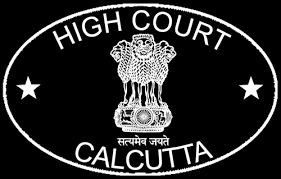G.H. Guttal, J.@mdashThe question for consideration is whether upon the death of a joint promisor, in a contract of sale of immoveable property, the right to sue for a negative specific performance by an injunction, survives against the legal representatives of such joint promisor. Jose Varkey, the Petitioner in C.M.P. 1083/1993 and the Appellant in the Second Appeal No. 563/1991 is the Plaintiff in O.S. 226/1982 out of which the Second Appeal arises. Joseph, Rockey and Abraham the Respondent Nos. 1, 2 and 3 respectively herein, were the Defendant Nos. 1,2, and 3 in the aforesaid suit. The remaining Defendants in the suit are not parties to these petitions. C.M.P.No. 1083/1993 is for bringing on the record of the Second Appeal, the legal representatives of the deceased Defendant No. 1 Joseph. The legal representatives sought to be impleaded are Mrs. Mercy Joseph and Mrs. Leela Abraham.
The C.M.P.No. 943/1993 is by Rockey and C.D. Abraham, the Defendant Nos. 2 and 3 respectively in the Suit and the Respondent Nos. 2 and 3 in the Second Appeal. According to them, the cause of action did not survive after the death of Joseph, the deceased Respondent No. 1. They pray that the Second Appeal be dismissed.
Petitioner in C.M.P.No. 1083/1993 is, in this judgment, referred to as the Plaintiff. The Petitioners in C.M.P.No. 943/1993 are referred to as the Defendants. The land in dispute belongs to the Defendants 4 to 7 in the suit. In 1980, the Defendants 1 to 3 agreed to purchase the property from the Defendants 4 to 7 and are in possession of the land in pursuance of the agreement of sale. By an agreement dated 23-7-1981, the Defendants 1 to 3 agreed to sell the same property to the Plaintiff. The Plaintiff filed the suit for a permanent injunction restraining the Defendants from selling the land or delivering its possession to any one except the Plaintiff. The Additional Sub Judge, Ernakulam made a decree of permanent injunction as prayed. The District Judge, Ernakulam allowed the Defendants'' Appeal Suit No. 292/1985 and dismissed the Original Suit No. 226/1982.
2. The agreement of sale in favour of the Plaintiff does not create interest in the property. The injunction claimed by the Plaintiff is a decree in personam. It does not go with the land. It is therefore urged by the Defendants that the right to the personal remedy of injunction ended with the death of the Defendant No. 1. According to the Defendants the appeal has abated.
3. The appeal does not abate if the right to sue survives the death of the Defendant No. 1. The Suit is for a permanent injunction restraining the Defendants from committing a breach of the contract of sale of immoveable property. No doubt injunction to prevent breach of a contract, the performance of which cannot be specifically enforced cannot be granted. But an agreement to sell, can be specifically enforced. The injunction prayed for in the suit and the Second Appeal, is but a negative specific performance of the contract to sell the land. Therefore, the injunction prayed for in the Suit can be granted.
4. It is urged on the doctrine of actio personalis moritur cum persona, that upon the death of the Defendant No. 1 the right to the injunction stood extinguished.
In order to decide this question, the relevant provisions of the Contract Act and the Indian Succession Act need to be considered.
The rules of devolution of joint liabilities under the law of Contract do not support the Defendants'' contention. Where, as in this case, two or more persons have made a joint promise all such persons during their joint lives and after the death of any of them, his representative jointly with the survivor or survivors, and after the death of the last survivor the representatives of all jointly must fulfil the promise, Section 42 of the Contract Act, Thus, under this rule, after the death of Joseph, the Defendant No. 1, his representatives proposed to be joined as the respondents in the appeal are bound to perform the contract jointly with the Defendants 2 and 3.
Even if it is assumed that the liability to perform the contract does not, devolve on the legal representatives of the Defendant No. 1, yet the cause survives against the Defendants 2 and 3. Another principle of law which comes into play is this. Where there are two or more promisors - like the Defendants in this case - the promisee, the Plaintiff, has the right to compel any one or more promisors to perform the contract. Section 43 of the Contract Act. On this principle of law it is clear that the Plaintiff can, compel the Defendants 2 and 3 to perform the whole of the contract. Therefore, the right to compel the performance of the contract survives against the Defendant No. 2 and 3, also.
5. Consider the effect of section 306 of the Succession Act. The rights of action against a person at the time of his death survive to and against the executors and administrators. The exceptions to this rule are, the causes of action for defamation, assault, as defined in the Indian Penal Code or other personal injuries not causing the death of the party. Section 306 - Indian Succession Act. The right to the injunction prayed for does not arise out of defamation, assault or personal injury not causing the death. It is, based on the contract of sale. The right to sue for the injunction prayed for is therefore, outside the categories of the causes excepted by section 306 of the Indian Succession Act. As the Supreme Court has held "if the entire Suit claim is founded on torts; the Suit would undoubtedly abate. If the action is founded partly on torts and partly on contract, then such part of the claim as relates to torts would stand abated and the other part would survive. If the claim is founded entirely on contract, then the suit has to proceed to trial in its entirety.
Having regard to this position in law I am of the opinion that the Suit No. 226/1982 which is based entirely on the contract of sale and must proceed to a trial.
6. Learned counsel for the Defendants urged that a Suit for specific performance of contract, by the Plaintiff, if filed now, would barred by limitation. According to him if such a Suit is barred, the claim for the injunction is also barred. He relied upon the judgment of the Supreme Court in
I will assume that a suit for specific performance of the contract of sale, if filed today would be barred by limitation. But then the plaintiff can defend his possession that he obtained in pursuance of the contract. The right to defend his possession is not barred. In any event, this aspect is not relevant for considering whether the appeal abates.
7. In conclusion I hold that the doctrine actio personalis moritur cum persona which has limited application to cases arising entirely out of torts has no application to this case. Having regard to the rules of devolution of joint liabilities laid down in the law of contract, and the effect of section 306 of the Indian Succession Act I hold that the liability to perform the contract of sale survives against the legal representatives of the deceased Defendant No. 1. In any even the Defendants 2 and 3 can be compelled to perform the whole of the contract including the part of the deceased Defendant No. 1. Even if it is assumed that a suit for specific performance, if filed today would be barred by limitation, the suit for negative specific performance by an injunction is not barred.
For all these reasons the appeal does not abate. C.M.P.No. 1083 of 1993 is allowed. C.M.P.No. 943 of 1993 is dismissed.

